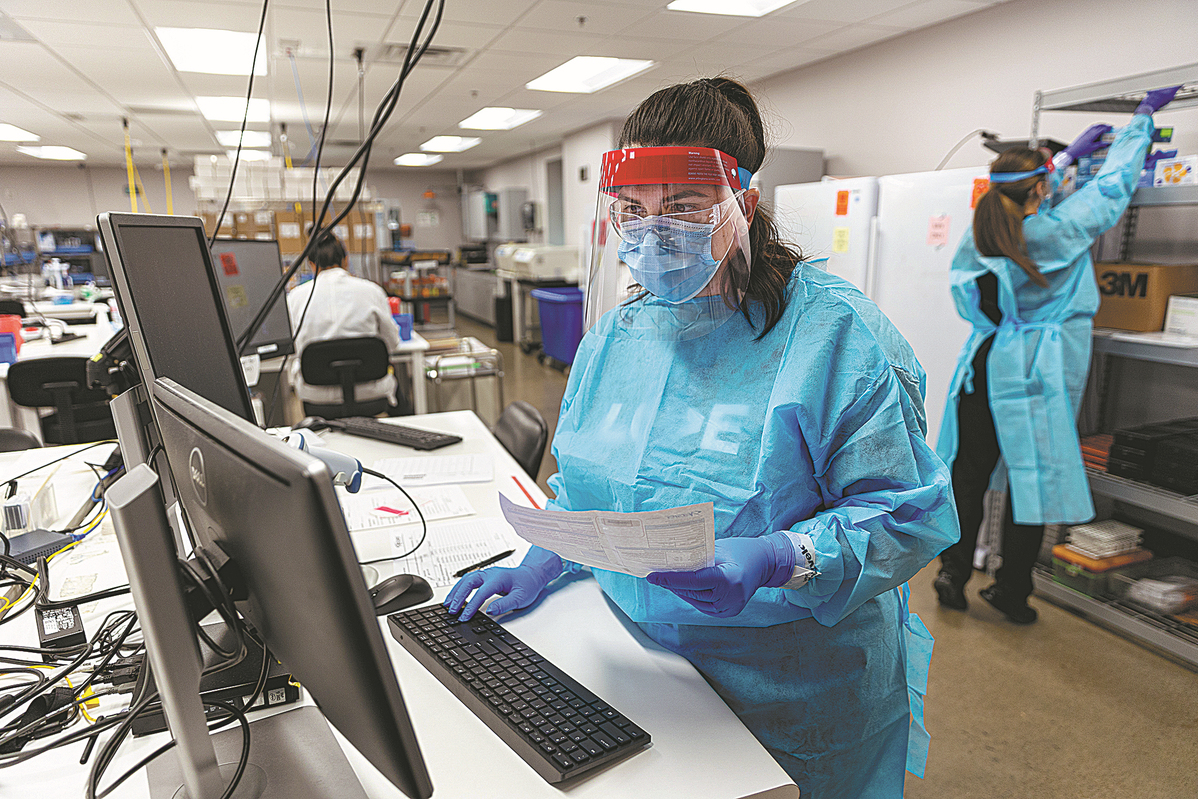Monkeypox call seen as catch-up bid
By LIA ZHU in San Francisco | China Daily | Updated: 2022-08-06 09:45
US' health emergency declaration may come too late to halt spread, experts say

The administration of US President Joe Biden on Thursday declared the country's monkeypox outbreak a public health emergency, but many health experts fear that it may be too late to contain the spread of infections.
Criticism of the White House's response to the disease outbreak has been building, with experts saying the authorities have been slow off the mark in distributing treatments and vaccines.
The White House's declaration signals that the monkeypox virus now represents a significant risk to citizens. The Secretary of Health and Human Services, Xavier Becerra, is considering a second declaration that would empower federal officials to expedite medical countermeasures, such as other potential treatments and vaccines, without going through comprehensive federal reviews.
That also would allow for greater flexibility in how the current supply of vaccines is administered, Becerra said.
Some 6,600 monkeypox infections have been reported in the United States, a number that has risen sharply over the past weeks.
Lawrence Gostin, a public health law expert at Georgetown University, said the declaration of the health emergency "signals the US government's seriousness and purpose, and sounds a global alarm". But he told The Associated Press that the action was overdue.
Gostin said the government has been too cautious and should have declared a nationwide emergency earlier.
On July 23, the World Health Organization declared a global health emergency over the outbreak, with cases in more than 70 countries.
California, Illinois and New York have all made declarations recently, as have New York City, San Francisco and San Diego County.
Since doctors diagnosed the first US case on May 27, the virus has been spreading rapidly in the country, with the highest rates per capita reported in Washington, New York and Georgia.
More than 99 percent of the infections are among men who have sex with men.
The virus is transmitted mostly during close physical contact. So far, no deaths from the disease have been reported in the US.
The country now has the highest case count among nonendemic countries, and the number is expected to rise as surveillance and testing improve.
Monkeypox is endemic in parts of Africa, where people have been infected through bites from rodents or small animals. Classification as endemic means a disease has a constant presence in a population but is not affecting an alarmingly large number of people, as typically seen in a pandemic.
'Rarely fatal'
On its website, the Centers for Disease Control and Prevention says of the virus: "Monkeypox virus is part of the same family of viruses as variola virus, the virus that causes smallpox. Monkeypox symptoms are similar to smallpox symptoms, but milder, and monkeypox is rarely fatal. Monkeypox is not related to chickenpox."
There is increasing concern that the US may have lost its chance to contain the monkeypox virus. Some public health experts have pointed fingers at the administration for its slowness in rolling out vaccines and treatments.
"The window for containing monkeypox is rapidly closing," Gostin warned in an interview with CNN late last month. He had called for the US to declare a national public health emergency and make more vaccine doses available.
"I do think it's still possible to contain, but it's also equally possible that this may become endemic in the United States," he said.
Supplies of a monkeypox vaccine called Jynneos have been limited even as demand surges. The administration has been criticized for moving too slowly to expand the number of doses.
Federal officials have identified about 1.6 million people as being at the highest risk for monkeypox, but the US has received enough Jynneos doses to fully cover only about 550,000 people.
The shortage of vaccines was caused in part because the Department of Health and Human Services failed early on to ask that bulk stocks of the vaccine it already owned be bottled for distribution, reported The New York Times, citing multiple unnamed administration officials familiar with the matter.
The government is now distributing about 1.1 million vaccine doses, less than a third of the 3.5 million that health officials now estimate are needed to fight the outbreak. It does not expect the next delivery, of 500,000 doses, until October.
























